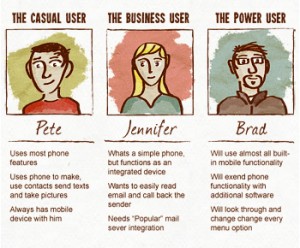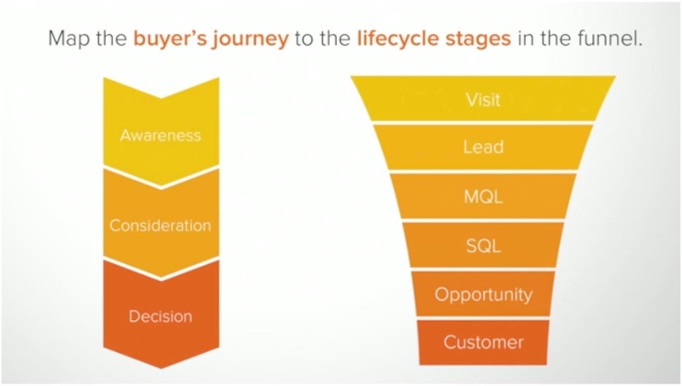Did you know that according to Mashable (2015), Google receives over 100 billion searches a month?
That’s right, a staggering number of people looking for answers in Google for their search queries, either as keywords, phrases or as voice searches. Given this fact, it clearly makes sense when 66% of marketers are saying that improving SEO and growing their organic presence is their top inbound marketing priority!
Much of Search Engine Optimisation (SEO), as we know it, delves around ranking high in Search Engine Results Pages (SERPs) of Search Engines like; Google, Bing, Yahoo, Baidu, etc., for targeted ‘keywords’ that relate to our industry and to the likes of our targeted audiences or, ‘Buyer Personas’.
It's primarily concerned with attracting as much organic traffic as we can, to our websites, by being ‘visible’ to these target audience, preferably by ranking on the 1st page of SERPs when they search for particular keyword/phrase, that relates to our business.
There was a time you could have easily fooled Google by stuffing the right words into the right places in your content, to rank on the first page. But now, with overwhelming numbers of marketers battling for similar keywords and Google becoming even more intelligent with its Algorithms, SEO is becoming a ‘hard nut to crack’.
SEO nowadays is simply not confined to just optimising singular keywords, but takes this expansive approach of: On-page SEO, Off-page SEO, Technical SEO, Social SEO, Quality Backlinks, Site Speed, Long-tail Keywords, Analytics, etc.
And we've been so caught up in this ‘optimisation’ game and ‘ranking fever’, that we tend to miss the true purpose – which is to understand and know our customers, to listen and get into their heads to decode their behaviour and preferences, to serve them better!
Or else, no matter how much effort we put into our SEO, we'll be simply rolling the dice or taking
a chance!
The following are some of the underpinnings you may want to consider, before you kick off your SEO Strategy:
1. Who’s your Customer? Identify their ‘Persona’
The effectiveness of SEO is determined by understanding the psyche of your audience (or prospective customers), searching for information online. It’s about deciphering why they behave the way they do.
You're better positioned to sell your product/services to the customers by knowing what makes them tick. The right way to go about this is to develop fictional, generalised representations of your ideal customers or (buyer personas), who are most likely to opt for your services or buy your products.
The template below from HubSpot suggests how you can build the attributes of your buyer personas by answering specific questions;
|
When developing buyer personas, here are some of the questions you should think about:
|
An example of a buyer persona (Sally), developed from the questions above, is displayed below: 
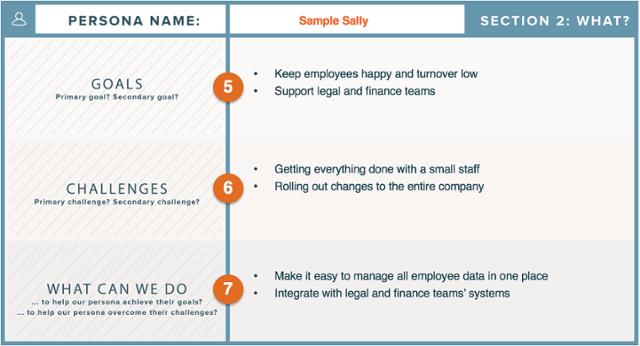

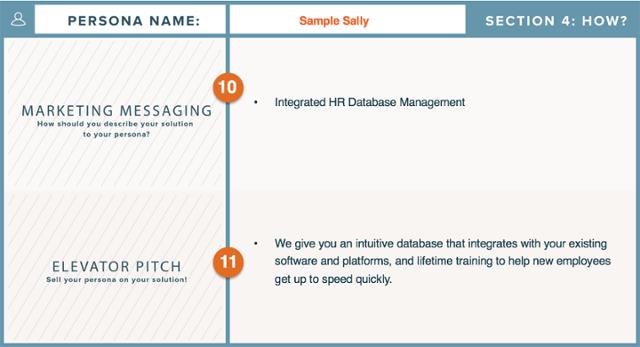
The more you engage with your existing customers and put in your research, you'll be able to group people into different categories of ‘personas’ by observing the similarities and differences in their behavioural pattern and attributes.
 |
 |
 |
 |
An example below from Woodst illustrates how three different individuals can be put into different category of personas: The Casual User; The Business User and The Power User. The categories can be arranged as you would like to ‘box’ your ideal customers. Another example could be; Small business Owner, Medium Business Owner and Large Business/Corporate.
This helps you to get a clear sense of what your ideal customer looks like and behaves. It helps you to assess their pain points and provide immediate solutions to their problems. Such insights will help you cater appropriate content and improve your SEO efforts to eventually engage the prospects with your brand.
2. Discover your customers’ ‘Intent’
Gone are the days when simple keywords were the only means of Search Methodology. The SEO tactics then were limited to finding keywords used to query search engines, then stuffing the content with these keywords.
The Search Engines of today have highly evolved to understand the intent of the user. It's not just keywords the users are punching in the search boxes. They're entering longer queries – resulting in conversational phrases.
Instead of typing ‘Inbound Marketing' they're entering, “How can I run an Inbound Marketing Plan for my small business?” Google then matches that intent based on click data, search data, and heuristics, and then provides richer and relevant intent-based results.
The intent of your customers defines which stage of the buyer’s journey and the stage of the funnel they are in:
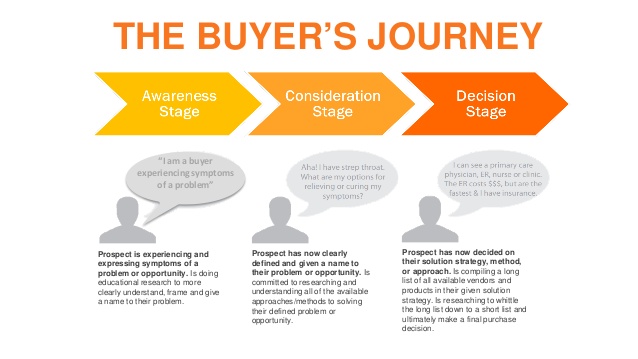
(Courtesy: HubSpot)
Each of your buyer personas may have a different intent, so to resonate with your specific personas, specific content needs to be produced.
A casual browser (persona1) may just be a newbie who is looking to learn more, but a power user (persona3) could be someone who is already ‘warmed up’ and is looking to make a decision. Different content can be crafted and optimised accordingly to up your SEO game – to inform, engage and move the prospects into their next stages in the funnel.
3. Provide Value at all cost
People are always on the lookout to assess and make sure they get a good deal, or good value in any kind of trade. Be it swapping an email address to download an eBook; or opting for the promotional ‘trial’ offer.
The questions always revolves around, ‘What benefits do I get?” or “What’s the price?”. Human beings are hard-wired with this kind of psyche, which is always looking to optimise and strike a favourable deal – and to develop a SEO strategy around this attribute can work wonders.
You need to furnish quality content and target it to the ‘right audience’ when they truly need it. The content can come in any form and should be readily available. And any
opt ins or lead magnets need to have minimum barrier for entry, so they find it easier to comply and appreciate the value provided.

Finally…
For any SEO strategy to work successfully, we need to make sure the focus is not only on the intricacies surrounding Google Algorithms, Keywords and Bots, but primarily on the people and our customers with whom we want to serve and engage our brand.
In the meantime, if you'd like more assistance with your content or would like to discuss anything covered today, we'd love to hear from you.
Call Andy Fox (me) on (03) 5249 5570 or email andy@element7digital.com.au
Our Website is element7digital.com.au


